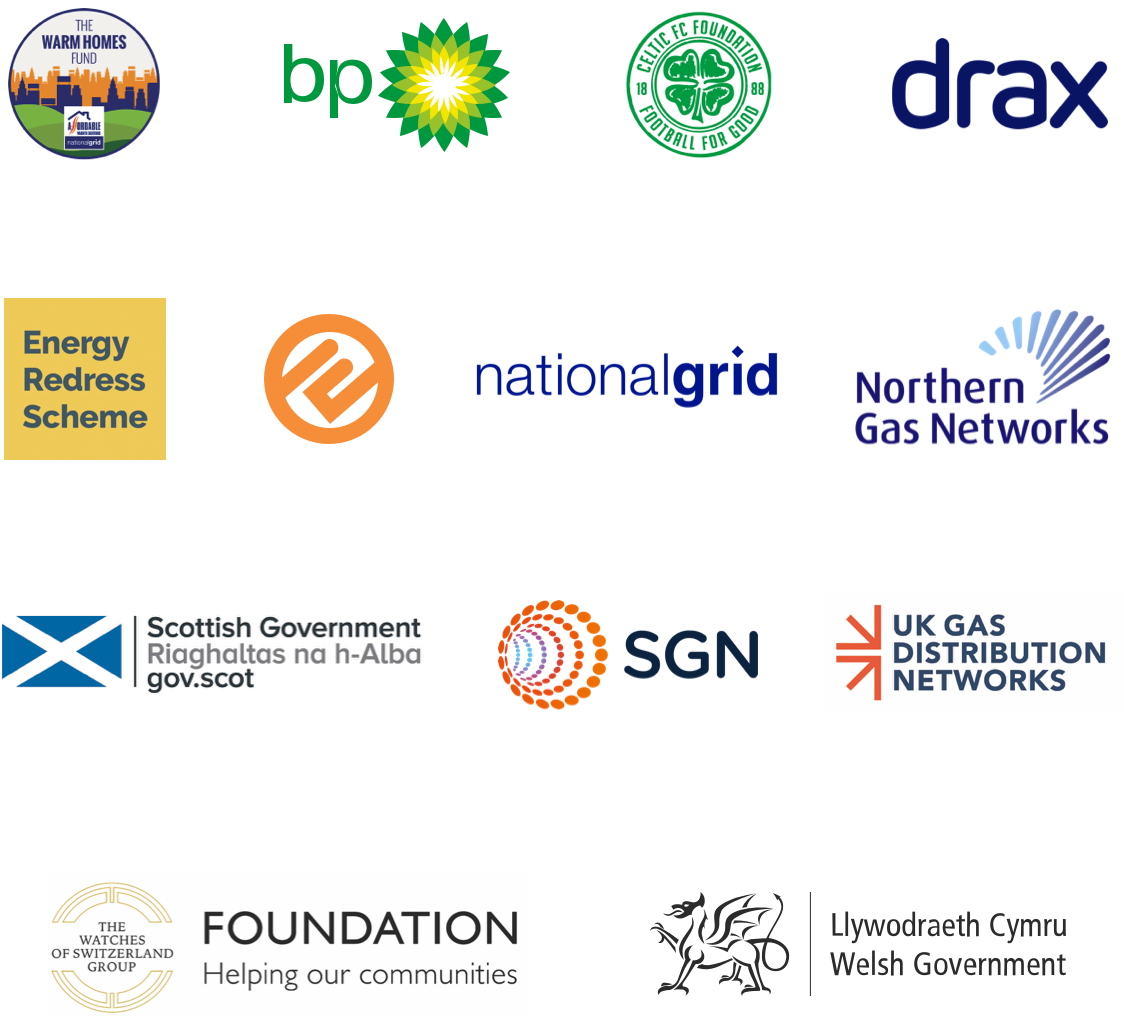This year’s insights show that fuel crisis is now severely affecting children. 45% of the people we surveyed this year have children at home. Many are losing access to heat, light, and power multiple times every week. The likelihood is that these children are going to school hungry, possibly wearing unwashed uniforms, and tired after being too cold to sleep. In short, they are being set up to fail in school and later life – which is unimaginably wrong and desperately sad.
Debt is now more prevalent since the cost of living has remained far too high for far too long.
A full 54% of people who received emergency financial help from us had to use it to pay down debt on their prepayment meter before they could switch the heat and lights back on. There were also some that were paying down credit cards – and even loans from unregulated lenders – that had been used to pay for energy. Nearly 70% said they are much more worried about their finances now than they were a year ago, and many tell us they have lost hope that things will get better.
Over a quarter of a million people will likely ask us for emergency help this winter to keep their lights, power, and heating on because they must prepay for energy but cannot afford to.
We are ready to offer help at this scale. But we are also ready to collaborate with the new Government – the party of change – to tackle the root causes of this problem and end it for good.
This report recommends several priority interventions that could resolve UK fuel crisis. Together they form three broad categories:
- Making warmth, light and power more affordable for the country’s poorest.
- Ensuring everybody has a good quality home that is inexpensive to keep warm.
- Providing better protections and support for people who must prepay for energy.
We have long been campaigning for more targeted financial support from the Government. Because not everyone who received the Winter Fuel Payment needed it, we cautiously welcomed the news that these payments will now be means-tested. But now, only people with a very low income will be eligible, and there are no tapered levels of support.
So we urge the Government to make sure the decision doesn’t create the conditions for fuel crisis to tighten its grip on those already affected and spread to more households.
To prevent this, we must fund crisis help for people at risk of living without access to energy, and support the estimated 880,000 struggling pensioners currently missing out on Pension Credit to claim their entitlements.
Fuel crisis is robbing too many people of their health, happiness, and potential.
Right now, the situation feels desperate. This is thought to cost the nation tens of billions each year in NHS and mental health expenses, care costs, and lost productivity. The financial and human costs of doing nothing – or doing more of the same – are getting out of control. We must find a way to fund and prioritise long-term, preventative solutions.
Like the Government, we are optimistic that this is the time for change. With collaborative action between the Government, the charity and energy sectors, and the regulator, it is entirely possible to shield the people we support from the dangers of being forced to live in cold, damp, and dark homes this winter and into the future.
Finally, I’d like to thank everyone who has helped us make our work possible so far, from our partner network to our funders and Board of Trustees, internal team and more.
We couldn’t do it without you.

CEO, Fuel Bank Foundation
Since launching in 2015, we’ve helped over 1.7 million people.
In the last 12 months we've...
Gifted a crisis fuel top-up to 576,326 people 60% of those people were adults, and 40% were children.
Gifted a free heated throw to 9,618 vulnerable clients in Wales and Scotland so they can spend less on staying warm and well by ‘heating the person, not the home’.
Provided an emergency delivery of alternative fuel such as coal, wood, or heating oil to 341 homes off the mains gas grid, so they weren’t forced to live in a cold, damp home for weeks and months.
Fuel Crisis in Numbers

5.9 Million
prepay for energy in the United Kingdom
4.4 million homes in the UK
use a pre-payment meter
1.5 million households
in the UK rely on heating oil to heat their homes

6 Million
homes are in fuel poverty in the UK
An increase of 25%
since October 2021

Younger people are desperately struggling
4.4 million children in the UK are being raised in poverty
15% run out of money to ‘top up’ daily
26% were already disconnected from their energy supply when they applied for a voucher
80% had young children at home
73% used their voucher to pay off meter debt
Younger people are desperately struggling
4.4 million children in the UK are being raised in poverty
15% run out of money to ‘top up’ daily
26% were already disconnected from their energy supply when they applied for a voucher
80% had young children at home
73% used their voucher to pay off meter debt
The severity of fuel crisis today
In the 12 months before receiving a fuel voucher...
0
were choosing between hot food or energy at least once a week
0
were rationing heating and/or hot water at least once a week
0
said they are much more worried about finances than they were a year ago

Our recommendations
The problem is now taking on a new level of urgency. This has been going on for so long that many people affected have lost all hope that life will get easier and they’ll get the opportunity to get back on their feet.
While our help makes a huge difference to the people we support, the severity of fuel crisis and our clients’ financial situations means that the impact is only temporary. The problem is too big and too complex for us to solve alone. But it must be solved – for the sake of the people we support and the national interest.
We are eager to work with the Government, the energy sector, the regulator and industry bodies to help solve the root causes of fuel crisis, give people back their hope and dignity, and provide them with the opportunity to improve their lives now and in the long term.
These recommendations for the Government, the regulator, and the energy sector fall into three broad categories:
- Make staying warm more affordable.
- Provide more support and protection for people who prepay for energy.
- Make sure everyone has a good quality home that is inexpensive to heat.
Our ideas for systemic change are grounded in insight gained from robust primary research and feedback from the 1.7m people we’ve helped to date.

Big Policy
Ask 1
Make warmth, light, and power more affordable
Sky-high energy costs are a recipe for fuel crisis. People of all ages are being affected, but households with children are being hit particularly hard.
What the Government can do:
Provide targeted funding to help vulnerable households stay warm – and crisis support to those in emergency situations.
What the energy suppliers can do:
Help prepayment customers to put money aside during the summer months to cover the higher costs of staying warm over winter


Big Policy
Ask 2
Provide more support and protections for people who prepay for energy
A lack of price control, regulatory protections, and supplier support leaves alternative fuel users dangerously vulnerable to unpredictable price spikes and fuel crisis. Despite having regulatory protections, mains prepayment customers are often not much better off. They either don’t know they have a right to support or are too afraid to ask their supplier for help.
What the Government can do:
Introduce targeted consumer protections for alternative fuel users.
What the regulator can do:
Mandate routine prepayment meter safety and suitability checks.
What the energy suppliers can do:
Provide proactive support for struggling prepayment customers.


Big Policy
Ask 3
Make sure everyone has a good quality home that is inexpensive to heat
Affordable warmth, light and power form part of the foundations for good health and mental welfare, productivity and success, education and skills development – and as such – GDP growth.
Yet, we address energy in a very siloed way and short term way. This approach has meant that funding for long term, preventative initiatives has been lacking.
As a result we are now spending billions every year across multiple policy areas (health, mental health, care, etc) trying to rectify the problems caused by cold homes.
What the Government can do:
Be more ambitious with the national energy efficiency programme.





Thank you
The work we do at Fuel Bank Foundation is the result of an enormous collaboration between many special people and organisations.
From our supporters who provide funding, to our 800 partner organisations who deliver Fuel Bank support directly in our clients’ communities, our challenge panel of energy, fi nance, and charity sector experts who help steer the work we do, and our customer panel who make sure our work remains rooted in the needs of the people we serve – we couldn’t do this without you.
Thank you to everyone involved for your invaluable contributions. We would also like to thank the ever-generous general public for your kind donations. Every penny you donated will be spent providing warmth, light, and power to people who otherwise would have none. Your generosity and drive to help others boosts our spirits and makes us more determined than ever to end UK fuel crisis.

